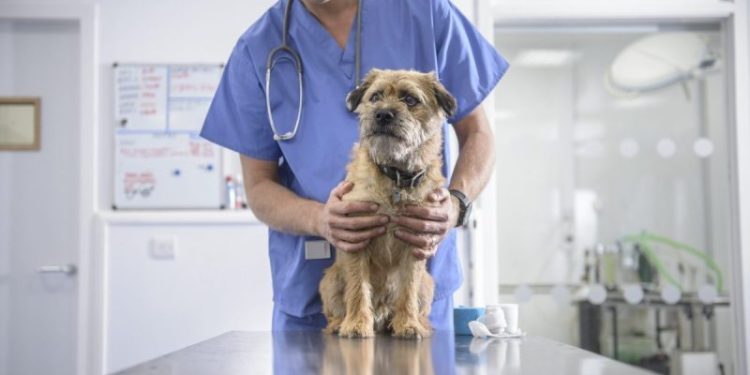
A mycoplasma infection in dogs, also known as mycoplasmosis, is caused by one of three bacterial microorganisms: Mycoplasma, T-mycoplasma (or Ureaplasma), and Acholeplasma. While mycoplasmas can be found in healthy animals as part of their normal bacterial flora, it can also lead to serious infections and illness. Fortunately, most mycoplasma infections are treatable with antibiotics, but it’s important to seek treatment as soon as possible because infections can spread to other parts of the body and cause severe damage.
If you see the signs of a mycoplasma infection in your dog, consult your veterinarian right away for a proper diagnosis and treatment. Here’s what you should know about the symptoms, causes, and treatments for mycoplasma infection in dogs.
Symptoms of mycoplasma infection in dogs
Mycoplasma bacteria are the smallest known life form capable of reproducing, and many species can live in host organisms without causing harm. However, others can proliferate and cause diseases such as kennel cough and pneumonia. This is especially true in dogs who have compromised immune systems.
The symptoms of mycoplasma infection in dogs can vary depending on which species is responsible for the infection and where in the body the infection is located. Most healthy dogs’ immune systems can control infections and fight off mycoplasma bacteria. So those dogs may show no signs of an infection at all, even though they carry the bacteria. However, sometimes mycoplasma bacteria can proliferate and cause symptoms.
Here are some of the symptoms seen in dogs who suffer from mycoplasma bacteria infection:
- Sneezing and sniffling
- Nasal discharge
- Coughing
- Pneumonia
- Weakness
- Lethargy
- Loss of appetite
- Weight loss
- Bladder or urinary tract infection
- Frequent urination or straining to urinate
- Blood in the urine
- Colitis
- Diarrhea
- Blood or mucus in stool
- Conjunctivitis
- Discharge from the eyes
- Arthritis
- Skin abscesses
- Neurological problems
- Anemia
- Infertility
- Abortion in pregnant dogs
Causes of mycoplasma infection in dogs
The causes of mycoplasma infection in dogs are a combination of exposure to the bacteria and the overall health of the immune system. Some bacterial species that can cause mycoplasmosis in dogs include Mycoplasma canis, Mycoplasma spumans, and Mycoplasma maculosum.
Exposure to mycoplasma bacteria can happen when dogs come into contact with other sick animals. This is fairly common in places where many dogs are together, such as dog parks, kennels, or shelters. The longer dogs spend with other animals, the greater their chances of being exposed to the bacteria.
Dogs who mate with infected animals, receive a blood transfusion from infected animals or fight and make contact with infected blood are more at risk. Usually, healthy dogs’ immune systems fight off infection, but when the immune system is compromised, dogs are more likely to be affected by mycoplasma bacteria.
Another bacterial or viral infection can suppress the immune system, as can certain medical treatments like chemotherapy or immunosuppressant drugs. Any long-term or chronic disease may also reduce the immune system’s ability to fight off mycoplasma bacteria.
Treatments for mycoplasma infection in dogs
Treatment for mycoplasma infection in dogs relies on a certain type of antibiotics. Some antibiotics that attack the cell wall are not effective against mycoplasma, as this family of bacteria doesn’t have a cell wall. Tetracycline and doxycycline are often prescribed for mycoplasmosis, instead. Vets usually prescribe these for at least two weeks.
If your dog suffers from a mycoplasma infection, it’s important to continue treatment until a veterinarian advises you to stop, even if symptoms improve. Failing to do so will often result in a relapse that will be even more difficult to treat.
Some mycoplasma infections can be transmitted to humans, so you must take precautions when treating your dog. In emergency cases, vets may treat dogs with intravenous fluid and hospitalization. Some who suffer from anemia may also need a blood transfusion, or they may need glucocorticoids.
Usually, vets will need to halt any medical treatment that suppresses the immune system until the infection clears up.





